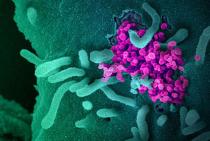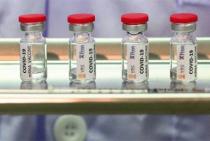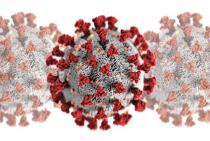Yes, our isolation has been a distinct advantage, but keeping Tonga COVID-19 free, comes with much hard work at the borders to keep it that way. World Environmental Health Day reminds us of the importance of public health intervention in preventing people becoming ill with COVID-19. We are preparing for the novel coronavirus to reach our shores. No country is immune. By Sela Akolo Fa'u, Viliami Tongamana and Denise Tully.
You are here
Results for Op-Ed Global Health
Monday 28 September 2020
Nuku'alofa, Tonga
Friday 28 August 2020
Abuja, Nigeria
Growing evidence shows that COVID-19 survivors can suffer from long-term health effects, not least heart-related complications. All countries with high rates of obesity should be considering programs encouraging weight loss, healthier eating, and physical activity. The more we can reduce the heart-related and other complications of COVID-19, the more lives we will save. By Ifeanyi M. Nsofor.
Wednesday 19 August 2020
Islamabad, Pakistan
By combining phones, Internet connectivity, and national IDs, a digital, demand-based social-protection system can be created to enable those in distress to seek support during crises. And it demonstrates how cash transfer programs can be deployed to counter the adverse socioeconomic consequences of external shocks, such as COVID-19. For Pakistan, this was a watershed moment in terms of government functioning. The crisis compelled the government to be more responsive, data-driven, experimental, and ambitious. At the same time in order for democracies to ensure progress, a culture of integrity and openness must be ingrained in government institutions and processes. By Sania Nishtar
Monday 10 August 2020
Melbourne, Australia
Many ethicists conclude that fully informed volunteers should be allowed to sign up for a potentially dangerous trial that will reduce the time required to bring an effective vaccine to everyone who could be exposed to SARS-CoV-2. The alternative is that the virus will continue to impose much higher levels of risk on other people, especially health care workers, older people, and people with underlying health conditions that reduce their chances of surviving infection. We should praise the young and healthy volunteers for risking their safety in order to save others. By Peter Singer and Isaac Martinez
Tuesday 28 July 2020
New York, USA
While ample resources – and high hopes – are being invested in the race to develop a COVID-19 vaccine, policymakers and the public should be preparing for a scenario in which no silver bullet is possible. But even in that case, writes renowned infectious disease expert William A. Haseltine, there are strong grounds to believe that we can control the virus and its spread.
Wednesday 22 July 2020
Geneva, Switzerland
During the 2009 swine flu pandemic, a few countries cornered the vaccine market, leaving the vast majority of the global population with no vaccine at all until the outbreak was effectively over. This scenario must be avoided at all costs during the current crisis – and, thanks to the COVID-19 Vaccine Global Access Facility, it can be. By Seth Berkley, Richard Hatchett, and Soumya Swaminathan.
Monday 20 July 2020
New York, USA
Even if one or more vaccines emerge that promise to make people less susceptible to COVID-19, the public-health problem will not be eliminated. But policymakers can avert some foreseeable problems by starting to address key questions about financing and distribution now. The toughest political question of all, though, is likely to concern access. Who should receive the initial doses of any vaccine? Who determines who is allowed into the queue and in what order? By Richard N. Haass
Wednesday 17 June 2020
London, United Kingdom
Governments cannot openly admit that the "controlled easing” of COVID-19 lockdowns in fact means controlled progress toward so-called herd immunity to the virus. Because there is currently no COVID-19 vaccine, governments have had to find other ways to prevent “excess deaths.” Most have opted for lockdowns, which remove entire populations from the path of the virus and thus deprive it of hosts. But this strategy has a terrible weakness: governments cannot keep their populations locked down until a vaccine arrives. Apart from anything else, the economic cost would be unthinkable. So, they have to ease the lockdown gradually. By Robert Skidelsky
Tuesday 7 April 2020
Melbourne, Australia
As government mandated lockdowns to combat the coronavirus pandemic affect a rising share of the global population, fewer will die of COVID-19, as well as other transmissible diseases. But how should we weigh those benefits against the costs of unemployment, social isolation, and widespread bankruptcies? By Peter Singer and Michael Plant.
Friday 3 April 2020
Austin-Texas, USA
China's success in "flattening the curve" of the COVID-19 epidemic has been held up as a model for the rest of the world to emulate. But what the world really needs to understand is that "victory" required massive sacrifices by doctors, nurses, and other health workers whose names we will never know. The doctors and nurses on the front lines having lived through hell, see little to celebrate, much to mourn, and reason to remain fearful.
Tuesday 24 March 2020
Cambridge-MA, USA
As the coronavirus pandemic shuts down the world’s economies, stock markets plummet, and unemployment rises, policymakers will be forced to figure out how to contain the outbreak while preventing financial and economic collapse. Most economic proposals in developed countries focus on cash payments to people, deferred tax payments, and business bailouts. But biomedicine is critical to saving the economy ...a simple immunity test could tell us who doesn’t need to be taken out of economic circulation... and impede an economic Armageddon.- Mark Roe.
Saturday 14 March 2020
Berlin, Germany
No one knows where or how fast a new virus will spread. We cannot calculate the risks with confidence, and we will know only in hindsight whether we overreacted or underreacted. Given this uncertainty, how we respond to a viral outbreak is as crucial as the nature of the pathogen. And how we respond to the COVID-19 coronavirus should be guided by what we have learned from past viral epidemics. - By Gerd Gigerenzer.
Monday 9 March 2020
New York, USA
Like climate change, the COVID-19 pandemic is a perfect example of why we need multilateralism in a globalized world. Rather than resorting to thinly veiled racism and isolationist policies, global leaders – particularly the United States – should have started organizing a collective response weeks ago. China’s experience with the virus in January and February is likely to be repeated in much of the rest of the world in March and April. We should be preparing intelligently...not succumbing to irrational panic. By Kevin Rudd.
Tuesday 3 March 2020
Princeton, USA
The apocalyptic images of the locked-down Chinese city of Wuhan have reached us all. The world is holding its breath over the spread of the new coronavirus, COVID-19, and governments are taking or preparing drastic measures that will necessarily sacrifice individual rights and freedoms for the general good. ...But few mention, let alone confront, the underlying cause of the epidemic. - Peter Singer.
Friday 12 July 2019
Geneva, Switzerland
An account of trauma will serve as a reminder to leaders around the world that violence, mental and sexual trauma, and substance abuse are interrelated issues that can have a deep and lasting impact on the lives of children. The evidence for this is overwhelming. This includes online abuse. The impact of violence lasts long after the abuse itself. Victims often experience lifelong social, emotional, and cognitive consequence and are more likely to become abusers themselves. By Zoleka Mandela, Etienne Krug, and Howard Taylor.
Wednesday 10 July 2019
Geneva, Switzerland
From infrastructure damage caused by extreme weather events to drought-induced food insecurity, there are many climate risks for which the world should urgently be preparing. But one of the areas where climate change poses arguably the most significant risk is barely being discussed: human health. By Seth Berkley.
Thursday 30 May 2019
New York, USA
The immune system – an intricate network of cells, tissues, and organs – is the human body’s primary mechanism for staying healthy. Decoding it should be central to our efforts to understand and fight illness, whether non-communicable diseases such as cancer, diabetes, and Alzheimer’s, or infectious ones such as tuberculosis, malaria, and Ebola. By fully leveraging the power of our immune systems, we could find new ways to fight disease everywhere. Artificial intelligence (AI) and machine learning will be the keys to this achievement - because of the vast size and complexity of the human immune system. It is billions of times larger than the human genome. By Wayne Koff.
Saturday 2 February 2019
Stockholm, Sweden
Our current diets are bad for our health and are harming the planet. Two billion people are now overweight or obese. Poor diet is the biggest cause of noncommunicable disease in the world, posing a greater risk of morbidity and mortality than unsafe sex, alcohol, tobacco, and drug abuse combined. By Line Gordon.
Friday 18 January 2019
Georgetown, Guyana
One of the biggest obstacles to reducing the rate of unplanned pregnancies is the lack of sex education in schools. If more teenagers had access to sex education and contraception, fewer girls would have their lives interrupted by pregnancy. Only by empowering women and girls with the resources to control their reproduction will the grim statistics that have long burdened Guyana – and many other countries – begin to change for the better. By Patricee Douglas
Monday 14 January 2019
New York, USA
In a world divided by conflict and greed, the Global Fund’s fight against AIDS, tuberculosis, and malaria is a matter of enlightened self-interest and a reminder of how much humanity can accomplish when we cooperate to save lives. For public and private donors, that means providing the financing needed to eliminate all three scourges by 2030.























